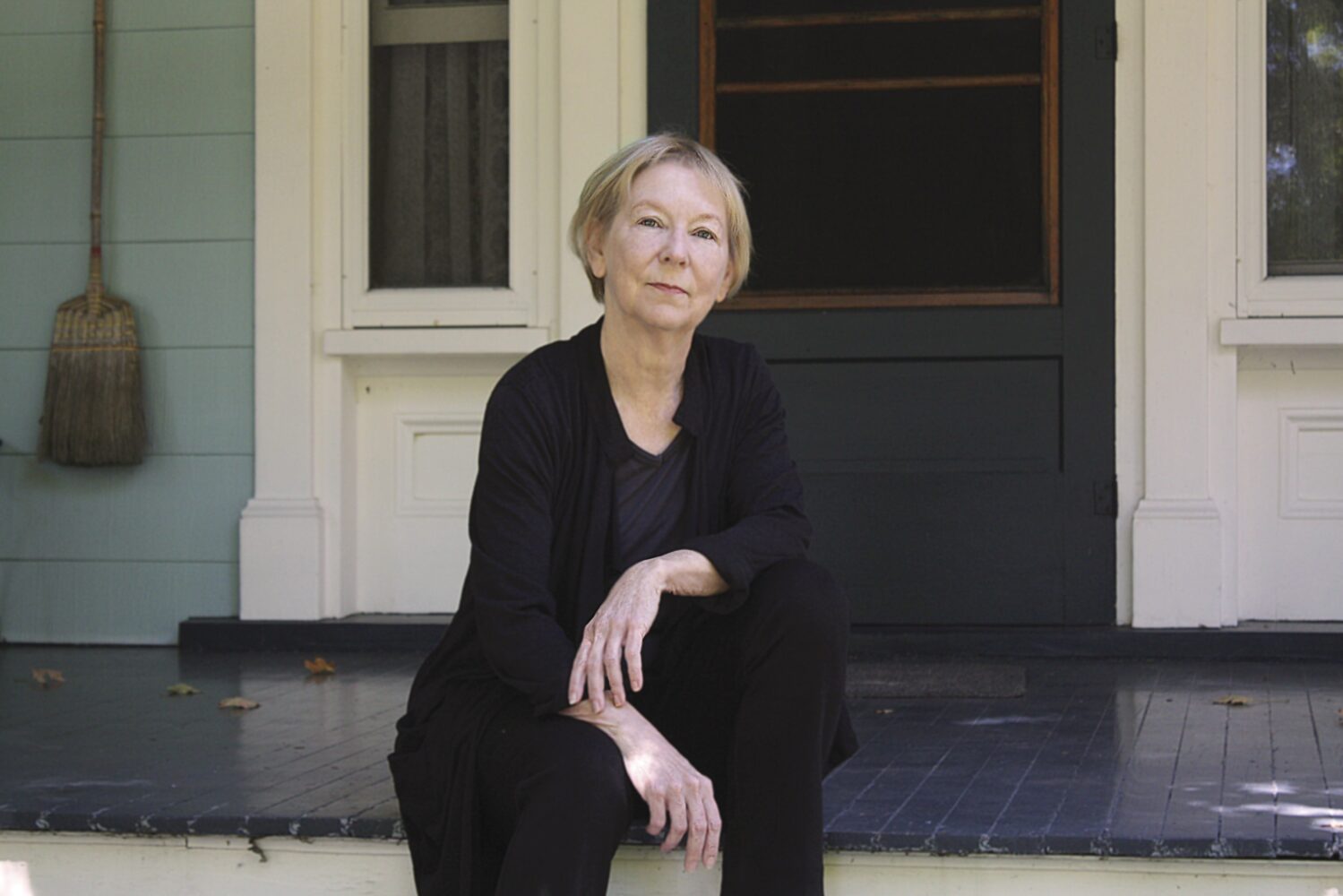A Pox on All Their Houses
Valerie Martin's A Recent Martyr
Published: February 26, 2021
Last Updated: June 8, 2021

Photo by Michael Lionstar
Valerie Martin.
If yours was like mine, you masked up. You bubbled, you podded, you locked down, you plotted escapes to state parks and far-flung cities. You missed your family and friends and seeing movies sitting among strangers. You worried. You voted. You mourned. You overate. You hunkered down. And you read books. You reread old favorites, bought too many new novels, piled paperbacks atop stacks of hardcovers as if all those books could protect you, like some paper and ink forcefield, from the virus.
I generally stayed away from all the sick lit everyone was reading during those first few months of the pandemic, before fact felt more fictional than fiction. But on a friend’s recommendation, I did read A Recent Martyr, Valerie Martin’s painfully prescient pandemic third novel, published in 1987.
Set in Reagan-era New Orleans, A Recent Martyr chronicles a dystopian city cursed with gasoline shortages, garbage strikes, embarrassingly low voter turnout, widespread sewerage backups, and multiple pumping station failures. Did someone say “dystopian”? Let’s just call it the New Orleans we know and love.
At the center of Martin’s tale is a Bovary-esque bizarre love triangle narrated by the novel’s protagonist-hypotenuse, Emma Miller. “I was a lonely wife,” she tells the reader, “a harried mother, a bored employee, and I needed a change, a little desire, an escapade.” She finds a fling in Pascal Toussaint, a mysterious, significantly younger Lothario who—and this is one of the few details we learn about him—hates the Catholic Church with a reverence reserved for the most hardened of non-believers.
Nevertheless, he’s obsessed with a nun-in-training, the third side to our triangular entanglement, Claire D’Anjou. She’s been dispatched from her Carmelite convent in Lacombe to New Orleans, a test of will and faith before taking her final orders. Claire’s devotion knows no bounds. “I don’t see why Christ should have suffered the agony of His crucifixion,” she professes to a swooning Pascal, “so that Christians might sit about in air-conditioned comfort feeling good about it.” Too famished to pray, because she is fasting, she instead flagellates herself with a leather whip.
Claire’s pious mortification of the flesh mirrors Emma and Pascal’s relationship, which evolves from aggressive kisses (“our tongues engaged in competitive assaults”) to non-consensual sadomasochism (“I was in fear for my lips”). Pascal pulls his lover’s hair, chokes, bites, and bruises her, and, in a sequence of progressively threatening knife play, draws blood. “I knew for the first time that I was beyond hope,” she confesses. “I was more than half in love with death.”
Upon meeting, both women recognize their shared plight, the agony and the ecstasy that accompanies each other’s violent bodily passions. “Why are you torturing yourself?” Emma challenges Claire. “Why are you torturing yourself?” Claire replies, recognizing a fellow victim.
A Recent Martyr, like all of Valerie Martin’s early New Orleans fiction (the novels Set in Motion and Alexandra, the short-story collections Love and The Consolation of Nature), has double-entendric teeth. Its bite is as sinister as the bite marks that often riddle the bodies of her characters. But more than the others, this is a novel hungry for readers.
That’s perhaps because A Recent Martyr arrived after an eight-year lull in publishing for the New Orleans–raised author, who found an editor thanks to her friend Margaret Atwood, to whom the book is dedicated. This interlude might explain the novel’s tempestuous mood: daring, dangerous, brimming with dark yearnings. It feels like a culmination of a young writer’s first phase, a leap off a ledge into the literary unknown (in a 1993 interview, Martin called it “the most technically challenging novel that I’ve written”). The book ushered in a second act for the author: the bestseller-turned-Hollywood-production Mary Reilly, the award-winning Property, a multifaceted career that includes a novelistic biography of St. Francis of Assisi and a series of children’s books starring a pair of cats named Anton and Cecil. But it’s A Recent Martyr that most resonates today.
Like the Titanic striking the iceberg immediately following Jack and Rose’s illicit consummation, Emma and Pascal’s increasingly dangerous liaison heralds a new twist of fate for the eternally sinking ship that is New Orleans: the plague. And not just any plague, but the bubonic plague. Thousands of dead rats wash up on the shores of the Mississippi River. Symptoms soon manifest in people: chills, joint pain, high fever. Doctors discover the contagion is spread through the simple act of breathing. Perhaps in an allusion to the contemporaneous AIDS crisis, bodies become weaponized in a whole new way. Emma’s description of what follows is familiar to anyone who lived through the last year: “On doorsteps, in buses, on street corners, in groceries, everywhere they went, our citizens began to eye one another. Is something going irreversibly wrong? that look said. Is this going to be the big crunch? Will I survive it? Will you get out with me? Will you try to stop me?”
There’s widespread food shortages, shuttered schools, and death toll counts, but after that, our plague year diverges considerably from the one Martin imagines. The National Guard barricades the most infected area of the city, nine hundred square blocks encompassing the French Quarter, Tremé, Marigny, and Bywater neighborhoods. Inside the quarantine zone, Emma joins Claire in volunteering to feed the sick and destitute. Outside, Pascal seethes with unfulfilled libido. Slowly, all three succumb to this new normal. “Everything was inconvenient,” Martin writes, “but our citizens took each new blow to the general welfare with the same cheerful resignation that for two hundred years had sustained them through the vicissitudes of the climate.”
By book’s end, the titular martyr is sanctified. There’s promise of a vaccine, but the plague continues.
Rien Fertel recently won top honors for critical reviewing from the Press Club of New Orleans. He thanks George Bishop for bringing A Recent Martyr to his attention.
